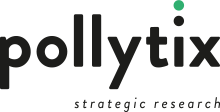We are using a range of qualitative and quantitative methodologies in order to answer your research questions. We often apply hybrid models by combining qualitative and quantitative techniques. We believe that each research project is different and hence a one-size-fits-all approach hardly ever suits well. This is why we do not apply standard products but deliberately choose to design research on an ad hoc basis – tailored to your specific research needs.
- Focus groups
Group discussions serve as research method if a research question has a discursive character. On the one hand they allow responding directly to the participants and therefore group discussions permit a deeper understanding of respondents’ perception. On the other hand these discourses of people offer the opportunity to gain valuable and new findings.
In the framework of a group discussion it is possible to simulate a public debate with a certain issue which helps to draw a conclusion about the development of different opinions in discourses that are either polarising or converging.
Certain individuals, for example political actors, sometimes are unable to take part in focus groups for various reasons. In order to talk to these persons as well and nevertheless, it is necessary to offer incentives to increase their willingness. Table talks also approved as methodical alternative.
- In-depth interviews
Qualitative in-depth interviews are major instruments of opinion research. These qualitative dialogues help to find out important attitude and opinions of people to get a deeper understanding of problems and contextual correlations.
Qualitative in-depth interviews allow interviewers to respond individually to the interviewed person which helps to identify and analyse undiscovered contexts and motives.
- Online groups, forums and communities
On the one hand qualitative online-methods like groups, bulletin boards, communities and diary studies are useful to evaluate websites or campaigning and communication materials and to develop new ideas and concepts. On the other hand these methods help to control “hot issues” in the contexts of election campaigns or issue management continuously.
In the framework of online groups it is possible to discuss about 2 hours (synchronal). Online Bulletin Boards can remain activated for some weeks (asynchronal).
- Semantic analysis
Automated semantic analyses are useful for the evaluation of large text volumes, for example open answers of quantitative polls but also focus groups and depth interviews.
pollytix provides a series of innovative tools for semantic analysing, which offer the graphic visualisation of conceptually links into text information






